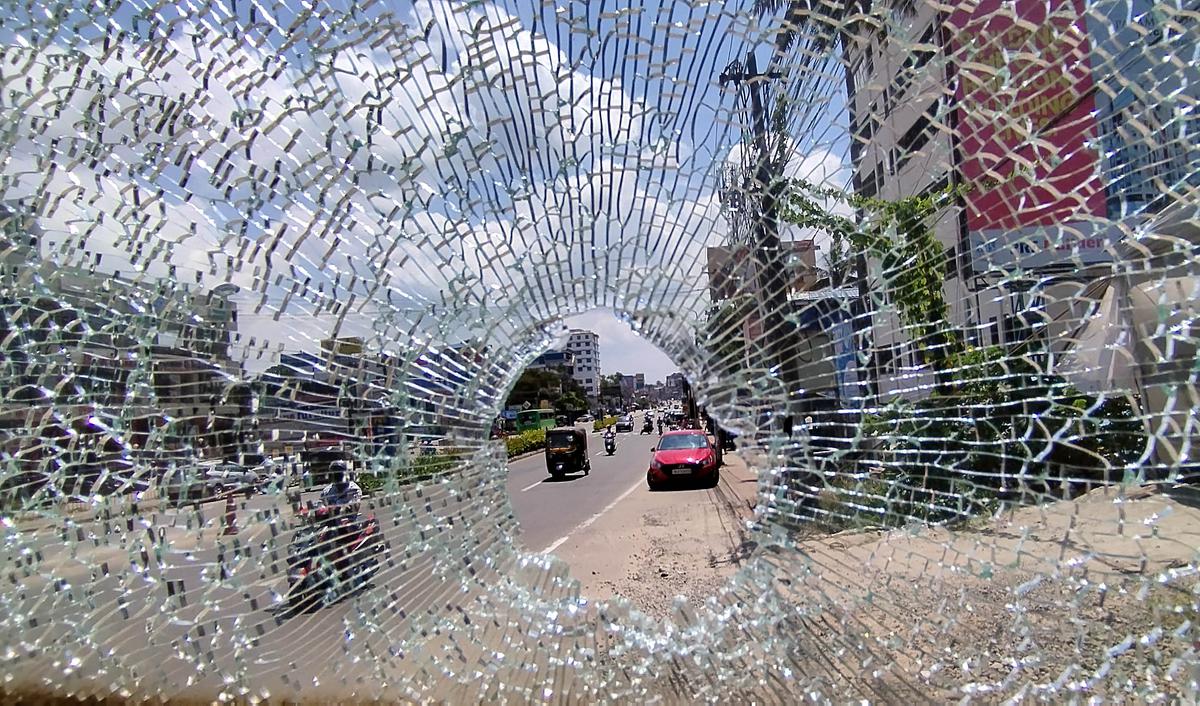Impromptu hartals have been Kerala’s bane over several decades. Organisations of all hues have shut down the State at different times and over the years to demonstrate their political heft.
Stranded travellers, stone-throwing casualties, deserted streets, vandalised shops and private properties, damaged public transport buses, hospitals devoid of patients, empty public offices, shuttered schools and closed fuel depots are the classic vignettes of hartal life in Kerala.
Keralites tend to remain indoors for the better part of the day, at least until the initial ferocity of the strike abates. Hartals have upended the rhythms of everyday life on scores of occasions. Recurrent hartals arguably risk projecting Kerala as a politically edgy and perennially volatile State with scant regard for civic rights.
Kerala has endured several crippling hartals that the public seemed to have lost count of them. Many citizens appear reconciled to strikes as an undeniable fact of life. Their anger is reflected mainly in critical memes and social media trolls.
Of late, hartals in Kerala are often called at the drop of a hat and for seemingly frivolous reasons, earning the criticism that most are patently unjustifiable.
Kerala’s hartals have also assumed a different character in the mobile phone age. Organisations use closed online messaging groups to direct their cadres, far away from the public eye. Such clandestinely organised and remote-controlled strikes have come to be known as “WhatsApp, guerilla or flash hartals”.
For the Kerala High Court, the most recent hartal called by the Popular Front of India (PFI) to protest the arrest of its top leaders by the National Investigation Agency (NIA) appeared to have crossed a line.
There were at least two petrol bomb attacks in North Kerala. Masked and helmet-clad persons travelling on motorbikes targeted buses, vehicles, shops and hotels in the State.
A premeditated action
Many attacks occurred near surveillance camera blindspots, indicating premeditated action. Hartal supporters vented their ire mainly on the Kerala State Road Transport Corporation (KSRTC) buses and private vehicles ferrying passengers to airports, hospitals, social functions and railway stations.
The Kerala High Court registered a suo moto case and held the PFI leaders liable for the privation, violence and loss to the public and private property caused by the hartal. It set the forfeiture of loss caused to public and private property as a pre-condition for granting bail to hartal supporters.
The Court deemed the PFI hartal unlawful. It pointed out that the organisation was answerable for judicial contempt. In earlier rulings, the High Court had insisted that organisations or individuals calling for a general strike should give the citizenry an advance notice of at least seven days so that the State would have sufficient time to prepare for the strike and safeguard public interest.
The direction empowered the public to file their objection, if any, in court. It also allowed the judiciary to examine the legality of the strike call.
The High Court Division Bench comprising Justice A.K. Jayasankaran Nambiar and Justice Mohammed Nias C.P. observed that “the citizens of the State cannot be made to live in fear solely because they do not have the organised might of the persons or political parties at whose instance violent acts during hartals are perpetrated”.
In the landmark ruling, the justices held the organisers of hartals directly responsible for the injuries inflicted on citizens and destruction caused to public and private property.
Editorial | Violent front: On the Popular Front of India
The Kerala HC ruled: “It is the rule of law, and not the rule of men or mobs that legitimises governance under our democracy. The very call for a flash hartal is illegal and unconstitutional, as it is not preceded by the adequate public notice”.
The court drew a clear line between peaceful demonstrations and violent protests.
Legal experts, traders’ organisations and various citizen groups have hailed the ruling as a watershed judgment that would deter those who initiate hartals with impunity and scant regard for the public interest.
However, whether Kerala’s future protests will become more democratic and civic remains to be seen.




